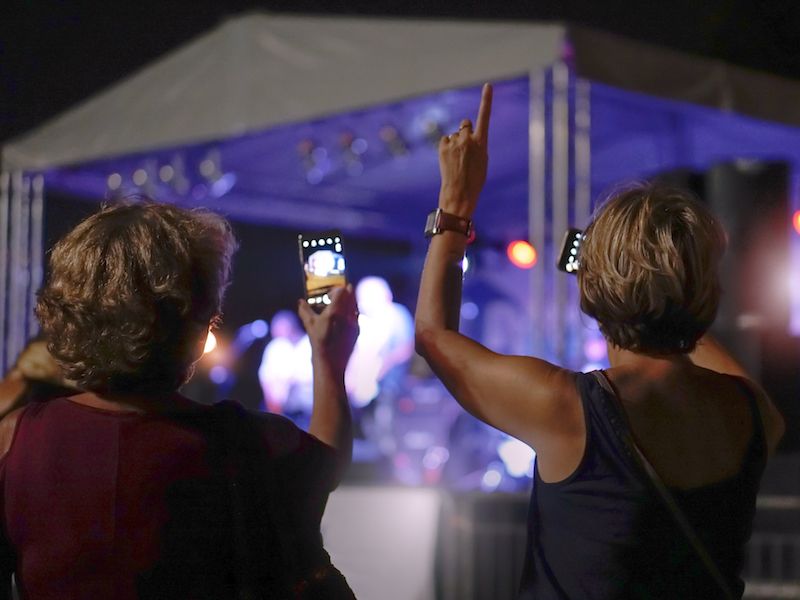
Summer is finally here, and you’re ready for all those things we’ve been looking forward to: swimming in the pool, visiting the beach, and other activities that can harm your ears. That’s right, summer has many hidden risks to your hearing, either from loud noises or the environmental situations you may find yourself in. Any noises above 80 decibels can damage your ears, while enduring loss of hearing can happen in pools or other bodies of water. To keep your hearing safe this summer, you have to be conscious of your environment and take precautions. Keep reading to learn the summer’s six hidden hazards to your ears.
When You Travel to Concerts, Put on Hearing Protection
Whether you’re at an indoor arena or an outside show venue you still should use ear protection during live music. 90 decibels is in the danger zone for ear damage and live music reaches this volume even when you’re at outdoor shows. So whether you’re attending an outside or inside shows, it’s a practical idea to wear earplugs. You can still hear the sounds with earplugs it’s just dampened a little bit. If you’re going to a show with young kids, consider getting them a heavy duty set of earmuffs since their hearing is much more sensitive than those of adults.
It’s Not Just Loud at Fireworks
Honestly, there are a lot of reasons to avoid fireworks in the summer. It’s not exclusively the 4th of July shows which are professional that can damage your hearing, we mean the backyard fireworks that bring about hundreds of accidents throughout the summer season. Home fireworks get to decibel levels of over 155 which can injure your ears on top of causing hand problems, blindness and home fires. This 4th of July, leave the fireworks to the pros and enjoy the display from a protected and sound distance.
Mowers Can Bring About Loss of Hearing
If you’re really serious about your yard, most likely you’re out there each week on your lawnmower, trimming your bushes and using your edger. But have you ever noted how off your ears feel when you get done, making everything sound muffled? That’s because the lawn tools, which are constantly loud, have a slow and steady impact on your hearing. If you’ve ever noticed landscapers, you most likely have seen them using ear protection, you should take a hint from them and wear earmuffs or earplugs next time you take care of your yard to make certain your ears stay healthy.
How to Protect Your Ears When You’re at Poole And Beaches
Millions of people suffer from swimmer’s ear each summer, which occurs when the ear canal traps water that is high in bacteria. Painful earaches and swelling are the result when the ear gets infected by the bacteria. These bacteria are commonly found in lakes and rivers but could also live in hot tubs and pools if the water isn’t thoroughly managed. No irreversible injury should occur if you get your hearing assessed by a hearing specialist. To be safe, when swimming in your pool, use specialized swimmers earplugs and keep the chemical balance correct to lessen the chance of getting swimmers ear.
Water Sports And Boats
If you enjoy the water, summertime is beach and boating time for you. But, jet ski and boat engines are often loud,they can get up to over 100 decibels. Continuous subjection to that kind of noise for a period of about 15 minutes can cause irreversible hearing damage. In this case also, wearing a set of throw away foam earplugs is a smart plan.
Car Races Can Hurt Your Hearing
It doesn’t make a difference what kind of auto racing you like, motorcycle, midget, Formula 1, drag racing or stock cars. If you go to a lot of auto-races this summer, they all pose a risk. It’s calculated that sound levels can exceed 120 decibels at many races, which is absolutely in the danger zone for hearing injury. As pointed out before, your kids should use muffs whereas you should wear earplugs at least. Because you may not be able to enjoy the sounds of any races in the future if you don’t.
